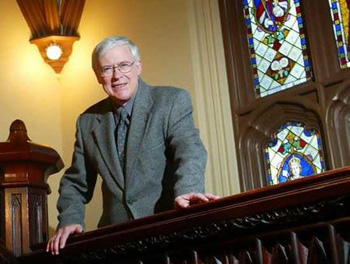GAFCON head says breakaway provinces are Anglican too
Continuing tensions in the Anglican Communion over the status of breakaway provinces have been highlighted by the general secretary of the conservative GAFCON group.
As well as the Anglican Church of North America (ACNA) which left the US Episcopal Church over its perceived liberalism, a rival Anglican province has been set up in Brazil. According to GAFCON, it is the 41st province in the Communion.

However, the Anglican Consultative Council (ACC)has refused to recognise either breakaway body. In the Church Times of May 18 ACC general secretary Bishop Josiah Idowu-Fearon claimed GAFCON had been inaccurate in its description. 'To be part of the Anglican Communion requires being in communion with the see of Canterbury, which this Church is not,' he said.
GAFCON general secretary Archbishop Peter Jensen has said in a statement: 'Here lies the difference between mere institutionalism and spiritual reality. The basic reason why there is a division amongst the Anglicans of Brazil is because the Episcopal Church of Brazil has departed from the teaching of Scripture, and hence from Anglican teaching, concerning sex and marriage... It is a matter of the fundamentals of the faith, of what makes a true church, of the authority of God's word.'
He sharply criticised the Church of England's leadership, saying: 'Communion with the see of Canterbury used to be a welcome, useful and easily understood way of describing the Anglican Communion. But with leadership comes responsibility. So far, the recent Archbishops of Canterbury have not used the power of their office either to discipline those who have created disorder and threatened the basis of our faith, or to reach out the right hand of fellowship to those who have stood firm.'
Jensen claimed the Anglican Church in Brazil was 'of course' an authentic part of the Anglican Communion and was inviting Canterbury to 'recognise spiritual reality, and to use its influence to help align the old instrument of the Anglican Communion with the spiritual reality and new growth of the Communion'.











